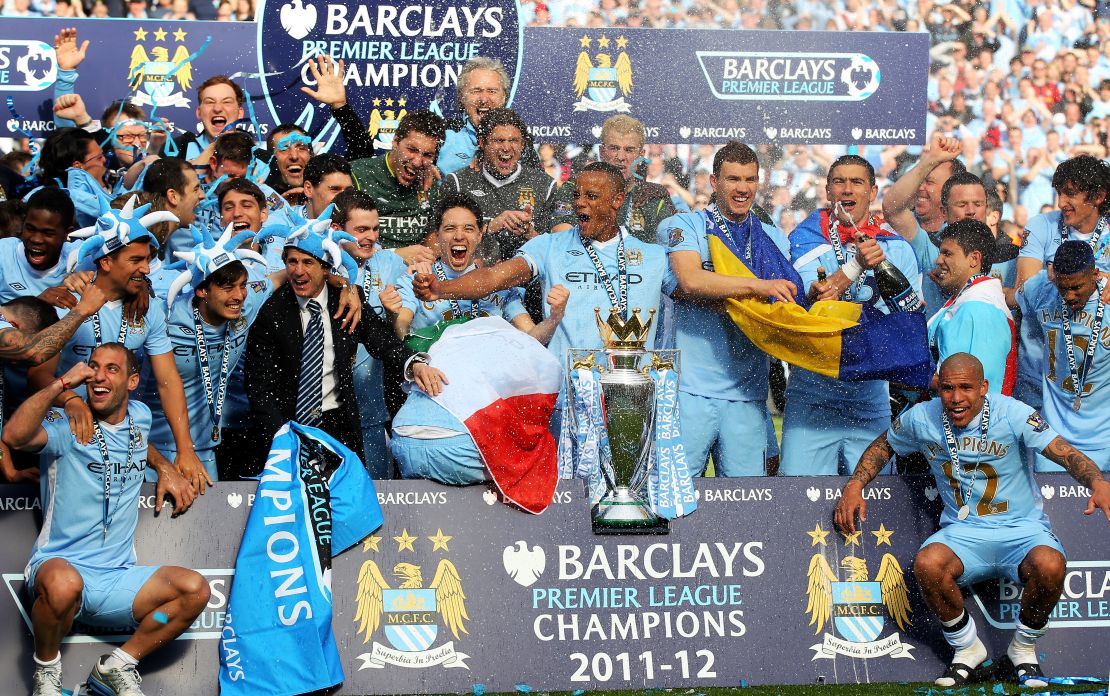Story highlights
Report from accountancy firm Deloitte shows Premier League revenues rising rapidly
But wages have also risen at a sharp rate accounting for 70% of that bumper revenue
The German Bundesliga remains the continent's most profitable competition
UEFA's Financial Fair Play regulations soon to alter finances, Deloitte say
The English Premier League has retained its place as European football’s most lucrative competition after revenues for the 2010/11 season increased by 12% to top £2.27 billion ($3.5 bn), according to a new report.
But more than 80% of that increase was swallowed up by wages, which rose to £1.6 billion ($2.47 bn) and now make up 70% of the overall revenue, accountancy firm Deloitte said.
The German Bundesliga remained the continent’s most profitable league as operating profits rose to £154m ($238m), an increase of nearly a quarter on the previous year.
In comparison, the Premier League’s operating profits dropped by £16m ($24.8m) to £68m ($105m).

Big-spending Man City top Premier League value table
Dan Jones, from the Sports Business Group at Deloitte, said: “Top clubs in English football have continued to show impressive revenue growth despite a difficult economic climate.
“Premier League clubs’ revenues increased by 12% in 2010/11, driven by broadcast revenue increasing by 13% to £1,17 bn ($1.8 bn) in the first year of a new three year broadcast cycle.
“This uplift was primarily due to an increase in overseas broadcast deal values, demonstrating once again the Premier League’s unrivaled global popularity. “
Hugely popular it may be but with the Premier League again breaking a new record for spending on transfer fees, it will soon have to confront UEFA’s Financial Fair Play (FFP) regulations.
Soccer’s European governing body introduced FFP, which began its monitoring phase last season, to break the cycle of huge debts and force clubs to spend no more than they earn.
The rules are also designed to prevent wealthy owners writing off big debts through their personal fortunes, like at Chelsea, where Russian owner Roman Abramovich has pumped in £819m ($1.2 bn), according to Deloitte.
Adam Bull from Deloitte, said: “Despite the increase in revenue generated by Premier League clubs, operating profits reduced by £16m ($24.8m) to £68m ($105m) in 2010/11 and combined pre-tax losses were £380m ($588m).
“Gross transfer spending by Premier League clubs increased by 38%, from £210m ($325m) to a record level of £769m ($1.1 bn). The challenge for clubs remains converting impressive revenue growth into sustainable profits.
“This will become even more important for a number of clubs as the financial results for 2011/12 will, for the first time, count towards their UEFA Financial Fair Play break-even calculation.”
Although the net debt of Premier League clubs did fall to its lowest level since 2006, half of the 20 teams reported an increase in losses.
Brand power: Football’s most valuable clubs unveiled
But thanks to a large upgrade in facilities over the past decade the Premier League’s clubs recorded an increase in their fixed assets to almost £1.9 billion ($2.9 bn).
Paul Rawnsley, director in the Sports Business Group at Deloitte, said many Premier League clubs would have to make significant adjustments to meet FFP.
“This is the cornerstone of UEFA’s financial fair play regulations which aim to help clubs across Europe achieve a more sustainable balance between their costs and revenues and encourages investment for the longer term benefit of football.
“A significant number of clubs around Europe have some distance to travel on the road towards compliance.
“For many clubs there is a renewed focus on increasing revenues and the cost-side of the business model of some clubs also needs adapting.
“Overall, we expect the effective implementation of these measures, at both domestic and international levels, will help deliver a better balance between clubs’ costs and revenues.”







